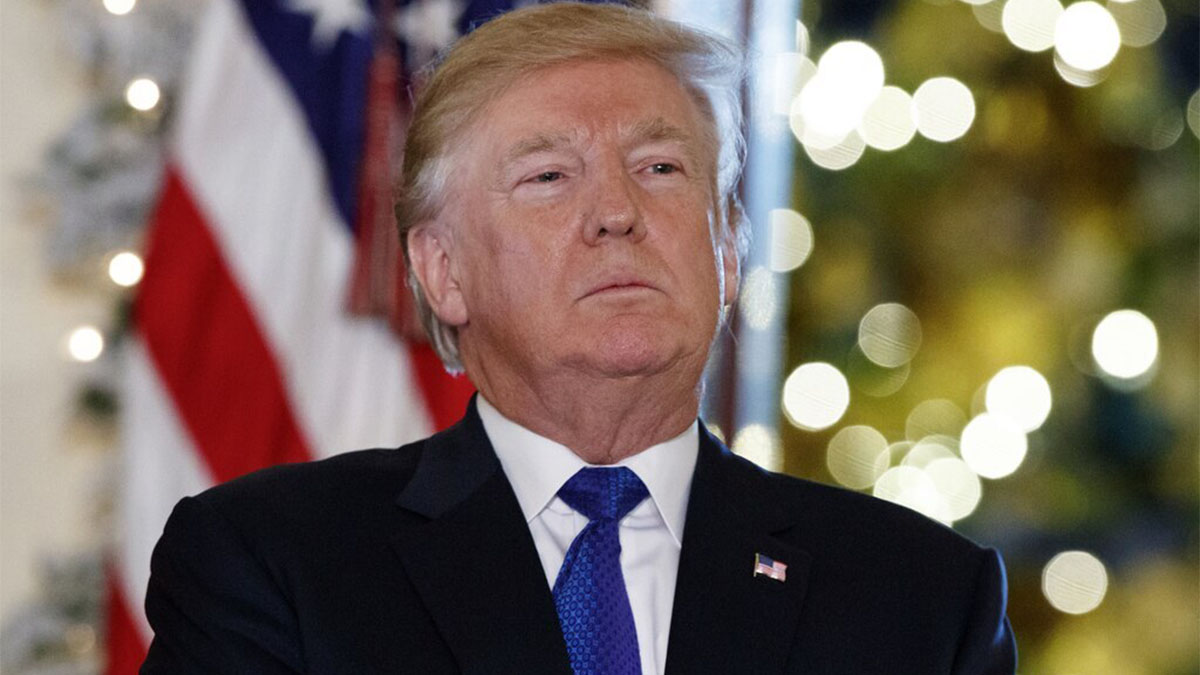A crackdown on foreign students is causing concern among college students, as they say the Trump administration is using vague reasons and new tactics to force some international students to leave the country, The Associated Press reported.
University officials fear this will discourage more international students from coming to the US. In a major shift from past policies, students who lose their visas are now being ordered by the Department of Homeland Security to leave immediately, instead of being allowed to stay and finish their studies.
Some students have been targeted for supporting pro-Palestinian causes, for committing crimes, or even for minor traffic violations. Others have no idea what they did wrong or why they’re being punished.
At Minnesota State University in Mankato, President Edward Inch told the campus that five international students had their visas revoked for unclear reasons.
The school found out about the revoked visas after checking a federal student database, following the detention of a Turkish student at the University of Minnesota in Minneapolis. The State Department said the detention was linked to a drunk driving conviction.
“These are troubling times, and this situation is unlike any we have navigated before,” Inch wrote in a message to the campus.
Former President Donald Trump had promised to deport foreign students involved in pro-Palestinian protests. The crackdown began when Columbia graduate student Mahmoud Khalil, a green-card-holder and Palestinian activist, was detained. He had been active in protests at Columbia University the previous year.
Impact Shorts
More ShortsSecretary of State Marco Rubio recently said students are being targeted for protest activity and possible criminal behavior. Over the past two weeks, the government appears to have expanded the crackdown. Colleges across the country have reported international students losing their visas and legal residency status—without warning. This includes students at Arizona State, Cornell, North Carolina State, the University of Oregon, the University of Texas, and the University of Colorado.
Some students are leaving the country on their own. Others, like at Tufts and the University of Alabama, have been detained by immigration authorities—sometimes even before the university was notified of their visa changes.
In this wave of enforcement, officials say the federal government is bypassing colleges and directly deleting international students’ records.
Students are being told to leave the US so suddenly that universities are struggling to respond, said Miriam Feldblum, president and CEO of the Presidents’ Alliance on Higher Education and Immigration.
In the past, students who lost their visas could still stay in the US and continue studying, though they would need to renew the visa if they left the country and wanted to return. Now, more students are losing their legal status altogether, putting them at risk of arrest.
“None of this is regular practice,” Feldblum said.
At North Carolina State University, two students from Saudi Arabia left the US after their legal student status was revoked. The university said it would help them finish the semester remotely.
Philip Vasto, who lived with one of the students, said his roommate was studying engineering management, didn’t attend any protests, and wasn’t politically active. Still, his student status was terminated without explanation. Since returning to Saudi Arabia, his roommate’s main concern has been finding another university.
“He’s made his peace with it,” Vasto said. “He doesn’t want to let it take away his peace any further.”
At the University of Texas at Austin, staff checking a federal database discovered that two international students had lost their permission to be in the US. One student from India had their legal status revoked on April 3, flagged in a criminal records check or due to a visa issue. Another student from Lebanon lost their status on March 28 for similar reasons.
Both students were recent graduates working full-time under a program allowing international students to gain professional experience. According to someone familiar with the case, neither had broken any rules related to their work permits.
Some students have had their visas revoked under a little-known law that blocks noncitizens whose presence may cause “serious adverse foreign policy consequences.” Trump cited this law in a January order to crack down on campus antisemitism.
However, many students being targeted in recent weeks have no clear political ties. Some are being forced to leave over minor crimes or traffic tickets, Feldblum said—even when those offenses had already been reported to the government.
Michelle Mittelstadt, from the Migration Policy Institute, said many of these cases would not have raised concerns in the past. As legal challenges move through the courts, students’ First Amendment rights may be tested.
“In some ways, what the administration is doing is really retroactive,” she said.
The Association of Public and Land-grant Universities is asking for a meeting with the State Department. While it’s unclear if visa revocations are happening more often than before, colleges worry it could have a chilling effect on international education.
Many schools have reported at least one student losing their visa, said Bernie Burrola, a vice president at the association. With little official information, some colleges are interviewing students or checking their social media for signs of political activism.
“The universities can’t seem to find anything connected to Gaza, protests, or social media,” Burrola said. “Some of these students are even funded by foreign governments that strictly discourage political involvement.”
There’s no clear pattern to who is being targeted, but some students are from the Middle East and China, he added.
At Texas A&M, officials looked into three students who lost their status and found that some had only minor offenses—like a speeding ticket—that had already been resolved.
US universities have long been seen as top destinations for the world’s brightest students, bringing valuable tuition money and research talent. But now, students are considering other options, said Fanta Aw, CEO of NAFSA, a group of international educators.
“We shouldn’t assume this is just the way it will always be,” she said.


)

)
)
)
)
)
)
)
)



